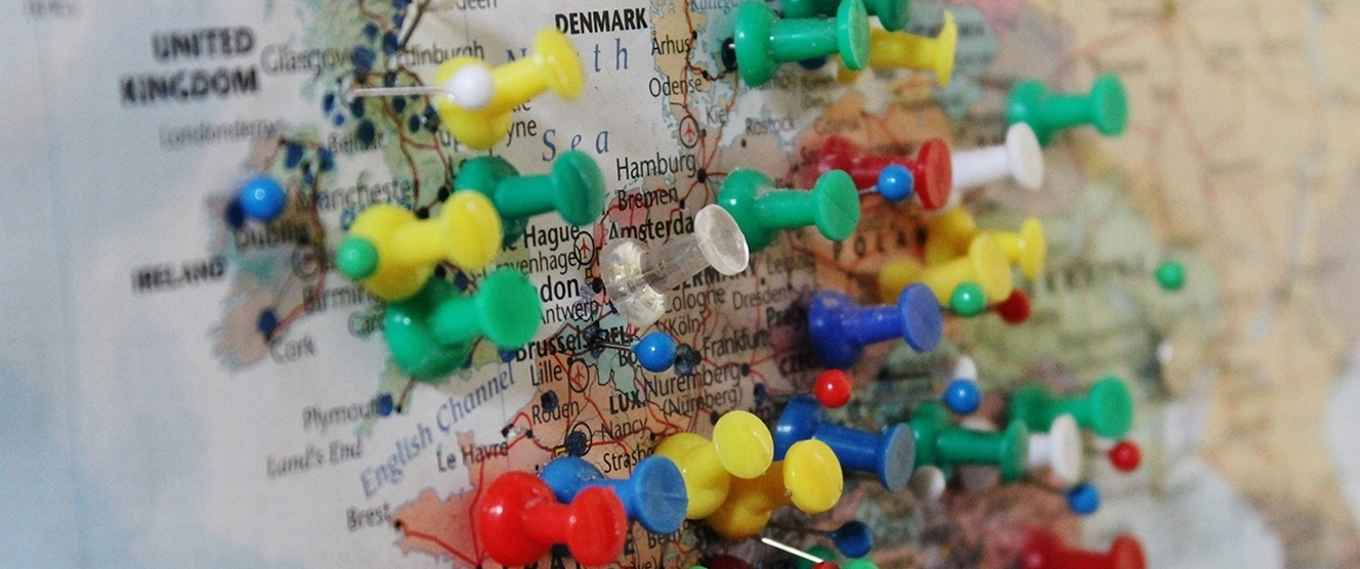Four humanities researchers to conduct research at UvA with Marie Curie Fellowship
28 February 2019

The awarded fellowships range from 175,000 to 280,000 euros. The grants are awarded as part of the Marie Skłodowska-Curie Actions, which forms part of the European Union’s Horizon 2020 research and innovation programme. The aim of the fellowship is to equip researchers with the necessary skills and international experience to pursue a successful career.
The recipients
Giulia Frezza (Amsterdam Center for Language and Communication, ACLC): Metaphorical Narratives in Dementia Discourse
Do we mean what we say? Two main metaphorical narratives are used in dementia discourse across different contexts as journalism, clinical practice, and between people living with dementia and their caregivers: ‘decline’ and ‘plasticity’ narratives. When we say that people living with dementia are ‘zombies’ or that they can ‘rewire their brain’ what are we implying? Giulia Frezza’s project analyses which scenarios such narratives entail for the different social agents involved and with which implications, risks and responsibilities for individual and social health.
Frezza will collaborate with Prof. Gerard Steen within the Metaphor Lab Amsterdam.
Elize Mazadiego (Amsterdam School of Cultural Analysis, ASCA): Decentralising Conceptual Art's Internationalism: Latin American Artists in Western Europe, 1968-1979
Elize Mazadiego’s project aims to problematise conceptual art’s ‘internationalism’ and the persistent binary between Euro-American conceptual art and global conceptualism with a re-examination of the interregional flows and networks of production between the two. Mazadiego will comprehensively study transnational artists who fled from Latin American repressive political regimes to Western Europe between 1968-1979, yet conceivably moving in and out of Conceptualism’s centres. The aim of this research is to develop our understanding of Latin American conceptualist art practices as they developed and adapted in a diasporic context, with the objective to demonstrate the fundamental importance of these artists to the development of Conceptual art in Europe and its international context beyond the U.S.
Mazadiego will collaborate with Prof. Christa-Maria Lerm-Hayes within the Art History capacity group. She will also be affiliated with the Amsterdam School of Cultural Analysis (ASCA). Mazadiego receives a Career Integration Grant.
Mikki Stelder (Amsterdam School for Cultural Analysis, ASCA): Maritime Imagination: A Cultural Oceanography of the Netherlands
Mikki Stelder will develop a cultural oceanography of Dutch maritime imagination. Her research will generate an innovative multi-era and interdisciplinary approach to the study of maritime worlds. Applying an oceanic perspective, her aim will be to show how a maritime frame – rather than a land-based frame – engenders new ways of theorising the formation of Dutch empire and colonialism and their intersecting socio-political, legal, environmental and economic discourses
Stelder heeft een Global Fellowship toegekend gekregen.Stelder has been awarded a Global Fellowship and will conduct her research at the Amsterdam School for Cultural Analysis (Prof. Mireille Rosello) in collaboration with the University of British Columbia (Prof. Renisa Mawani).
Iacer Calixto (Institute for Logic, Language and Computation, ILLC): Informing Multi-Modal Language Generation with World Knowledge
Models trained to generate human language already integrate visual input but still lack world knowledge. This is our knowledge about how the world works and how we use language to describe it. World knowledge is necessary to perform even simple human-like tasks such as describing an image. In IMAGINE, Iacer Calixto will build better and improved human language generation models that not only use vision and language, but also integrate world knowledge that will be automatically derived from presently available, large-scale knowledge bases.
Calixto holds a Global Fellowship and will collaborate with Raquel Fernández, who heads the ILLC’s Dialogue Modelling group. He will also visit New York University (USA) and Facebook Artificial Intelligence Research (France).